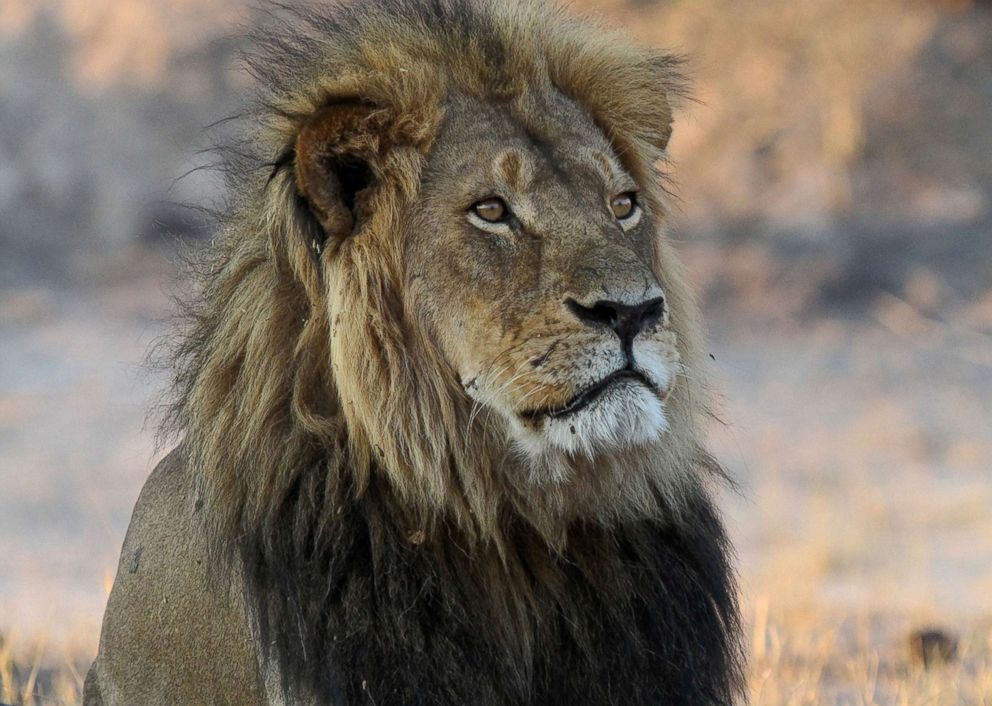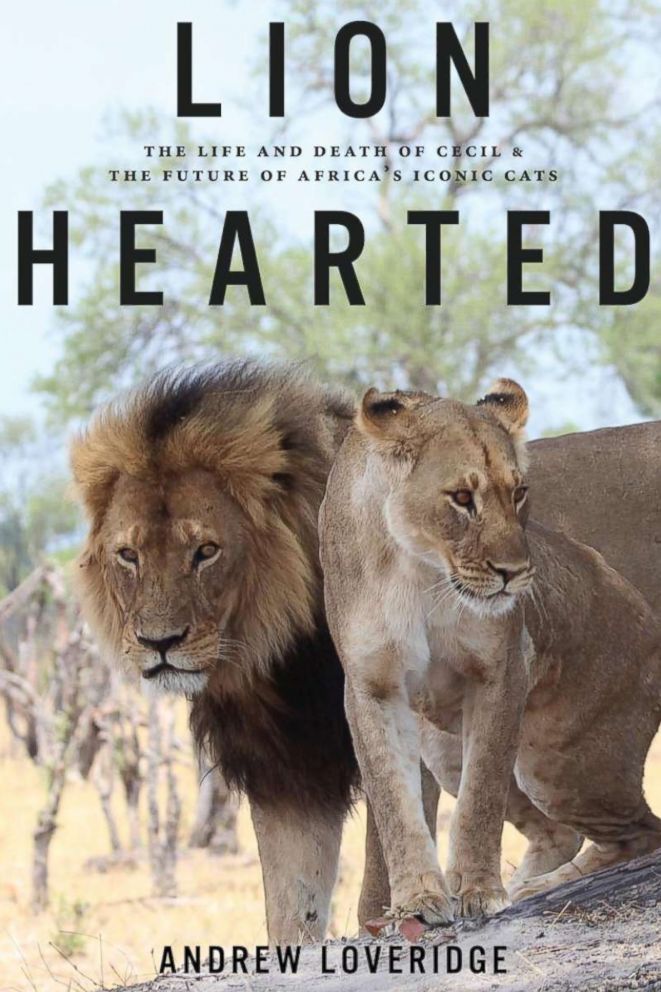Cecil the Lion was baited before he was killed, new book alleges
The book alleges a trophy hunter's team baited Cecil with an elephant carcass.
— -- Cecil the Lion was allegedly baited with an elephant carcass, drawing him out of a protected national park and into the crosshairs of a Minnesota trophy hunter perched in a tree stand nearby, according to never-before revealed details described in a new book on the beloved lion's death.
Wildlife Watch, an investigative reporting project from National Geographic, has published excerpts from a new book entitled “Lion Hearted: The Life and Death of Cecil & the Future of Africa’s Iconic Cats.” The author, biologist Andrew Loveridge, studied the cat for eight years at Oxford University’s WildCRU, a conservation research unit.
Cecil was killed in July 2015 by a Minneapolis-area dentist, Dr. Walter Palmer, who allegedly paid $50,000 for the chance to kill the 12-year old lion on a hunting expedition to Zimbabwe. The killing provoked international outrage over big-game hunting and protests outside Palmer’s office that forced him to shutter his dental practice for several weeks.
To prepare for Palmer’s expedition, Loveridge’s book contends, his hunting guide Theo Bronkhorst and wildlife tracker Cornelius Ncube dragged the carcass of an elephant that had been killed a week earlier by another hunting client to "a suitable location" 300 meters behind a Land Cruiser -- and outside the protected Hwange National Park. They constructed a hunting blind in a nearby tree, overlooking the elephant carcass.

The scent of the dead elephant drew Cecil out of his normal habitat in the protected national park, allowing Palmer to shoot Cecil with a compound bow from the hunting blind, according to Loveridge’s book, and the lion was killed between 9 p.m. and 11 p.m. on July 1, 2015.
"This was an easy lion to hunt -- a park lion, well-fed and habituated to people," Loveridge wrote.
GPS data transmitted from Cecil’s tracking collar in the overnight hours after he was shot show the lion only moved 160 meters from the place he had been shot before Bronkhorst advised Palmer to "finish the lion off" with a second arrow that would kill him.
Loveridge’s book claims the injured lion was killed 10 to 12 hours after he was initially shot, not the 40 hours that was reported by some media outlets in the weeks after his death, which is not to say the lion didn’t suffer before dying.

Ncube, the tracker, said he recalled hearing the animal “struggling to breathe” in the hours after he was shot, in Loveridge’s book.
Loveridge’s team had been tracking Cecil via the GPS collar, which the lion was wearing at the time of his death. He said he based his book on the location data transmitted from that collar, as well as interviews with people involved in the hunt.
However, he alleges Palmer’s hunting guide removed the GPS collar from Cecil’s neck at some point and it was never recovered. Bronkhorst admitted removing the collar in a moment of panic and hanging it on a tree near where Cecil was killed, the book said.
Palmer was never charged with a crime for Cecil’s death and told the Minneapolis Star-Tribune in a 2015 interview that no one in his guided hunting party knew the lion he killed was the beloved black-maned Cecil.
A high court in Zimbabwe dropped charges against Palmer’s hunting guide Theo Bronkhorst, ruling he didn’t do anything wrong since the lion was killed just outside the protected Hwange National Park in a privately owned wildlife area called the Gwaai Conservancy.
Palmer’s legal adviser Joe Friedberg told ABC News he did not yet have a response to the new details contained in Loveridge’s book.
The Trump administration reversed a ban last year on the import of lion trophies from certain parts of Africa, arguing that regulated hunting benefits the conservation of the species. African lions were place on the endangered species list for the first time in 2016, when as few as 17,000 African lions were reported to remain in the wild.
Loveridge’s book will be published on April 10.
ABC News' Stephanie Ebbs contributed to this report.



